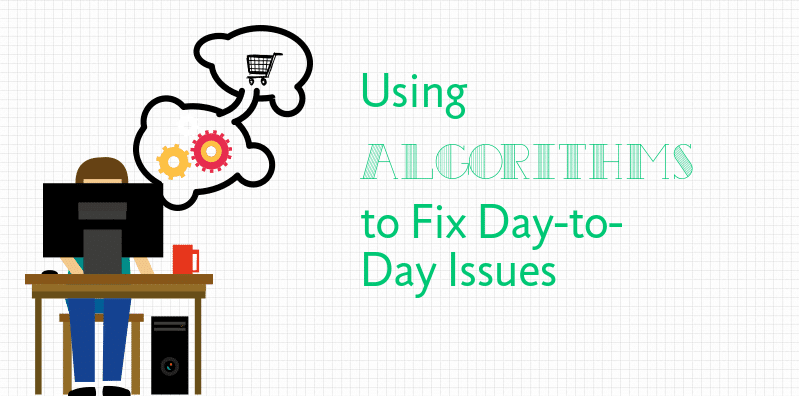
Using Algorithms to Fix Day-to-Day Issues
Algorithms have many applications. They make us think smarter, faster, and more efficiently. MIT System Design and Management graduate Ali Almossawi has written a book about just that. A book that can help you solve some of the most basic problems you have in your life – using algorithms.
Almossawi’s book, “Bad Choices: How Algorithms Can Help You Think Smarter and Live Happier,” solves issues like getting through the grocery list quicker, and having more people like your status on Facebook. His illustrated guide puts algorithmic thinking into the realm of something we can all appreciate and use.
But what is an algorithm? And why use it?

For example, choosing the most effective way to categorise your files for use. Algorithms aren’t just for the benefit of computer scientists. Using algorithms more widely in daily life could be of real use.
As he says, using algorithms is about efficiency. We are trying to achieve something. But we want it to take less time; we want it to be easier.
Algorithms can simply everything from shopping to recruitment
For example, workforce management app Roubler uses an algorithm in order to speed up a number of processes. We used to have separate sections of our business dedicated to hiring as opposed to payroll, or onboarding compared to progress tracking.
Roubler combines these sections into an easy-to-use app. It’s a set of rules, a straightforward process that encompasses all aspects of workforce hiring and maintenance.
This is some of what Almossawi is trying to explain in his book. As he explains, employing and using algorithms is important for thinking in terms of efficiency. Quality can also be important in terms of things such as love or experience. But algorithms help you optimize your time to hit a goal.
When hiring and organising a workforce, you aren’t looking for a long and leisurely experience. You are looking to have your workforce where you need them as quickly as possible. It’s no use spending so long recruiting, onboarding, and scheduling Santa’s elves that they’re ready two weeks after Christmas.
Hiring is a fast game, and algorithms can achieve that speed in order to help you stay competitive.
Algorithms are the smarter future
Almossawi points out that companies are beginning to use algorithms very well. Netflix, for example, has users watching shows as a result of their recommendation algorithm. If it’s the way of the future, the quicker you get involved, the better.
Image Source: Toptal